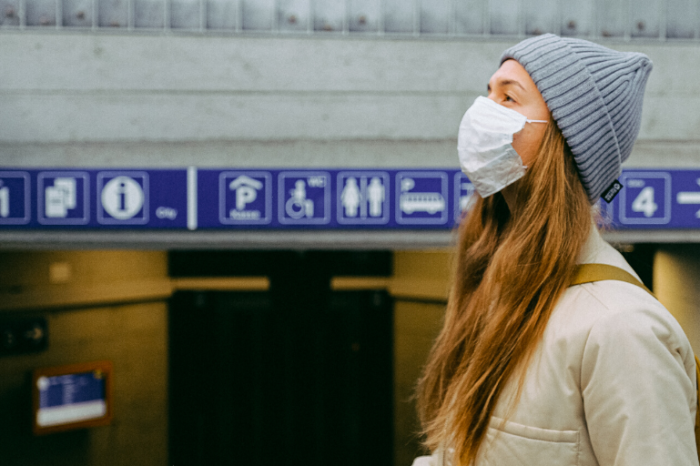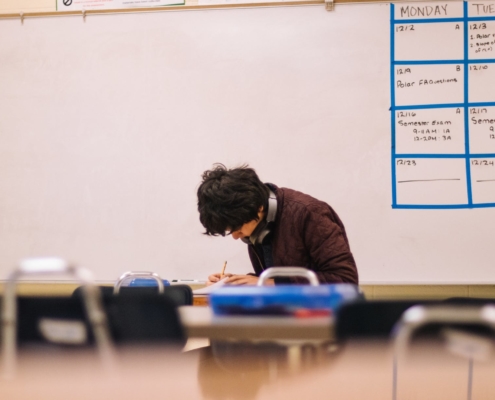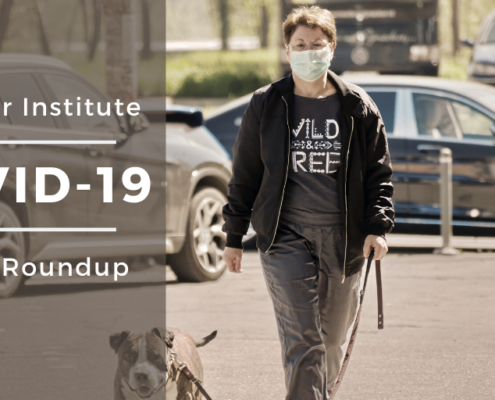Time to follow the science, not fear
With Governor Baker set to announce the details of his phase one re-opening plan, Pioneer Institute shares the following principles to frame state action on the novel coronavirus (COVID-19).
Background
On March 15th, Governor Baker announced the closure of Massachusetts’ public schools. On March 23rd, he issued an advisory order for residents, and an emergency order to close nonessential businesses. At the time, our state and country faced unprecedented uncertainty. Many government actions were based less on science and more on reasonable and prudent defensive postures given the dearth of information about the novel coronavirus (COVID-19). Without reliable data on fatality and contagion rates, and long-term impact, we could not set parameters around risks. Absent such information, erring on the side of caution was justified. Given the rapid emergence of the virus, we understand that the initial phase of responses was necessarily messy.
Since then, state and local governments, business owners and employees, and the general public have behaved admirably. While there have been mistakes and missed opportunities, Massachusetts’ response has exhibited discipline and care for others, putting public safety above all. In 1798, John Adams noted in an address to the Massachusetts Militiamen that “our constitution was made only for a moral” people. On that score we have lived up to our founders’ hopes.
Over the past two months, we have all learned a great deal about COVID-19 and the efficacy of – and the new challenges created by – our policy responses. We have learned from the countries and states that were hit earliest. We read obsessively about potential new cures, the relevance of masks and heightened hygienic practices, and related physical and mental health and economic impacts.
Because of the discipline of our people and increased knowledge, we understand the risks and opportunities ahead. As a result, Pioneer Institute believes it is time to move to a more thoughtful, science-based footing.
1. At a time of pandemic, reasonable accommodations to protect the public can be justifiable and do not necessarily contradict commitment to respect individual liberty.
2. State governments are empowered to protect residents’ health and safety. Those powers, whenever possible, are meant to be applied on the basis of science and historical experience, not through the exercise of arbitrary power.
3. Policymakers must clearly articulate science-based recommendations for personal covering, hygiene, social distancing, and actions needed to protect individuals with higher risk profiles but they must refrain from arbitrarily and subjectively defining what is and isn’t “essential.”
4. Policymakers should provide guidance and educate residents but refrain from giving unwarranted or arbitrary orders. A more productive and effective approach is to leverage social norms and pressure to promote science-based, counter-pandemic behaviors.
5. When governments get into the business of controlling aspects of residents’ lives, they lose focus on aspects of the fight against the pandemic that need most attention, like the state’s uneven efforts to protect the high-risk elderly population in long-term care facilities.
The following are principles related to private and public institutions that serve the public:
6. Private institutions engaging in retail and direct service of customers have the right and moral duty to protect their employees and customers, and therefore must be able to deny service to individuals who do not practice social distancing and other pandemic health measures.
7. Public institutions that accommodate customers in close quarters — e.g., the MBTA, swimming pools, beaches and parks, etc. —must have the power to require customers to adopt protective measures. That said, agencies managing public services and spaces must default to staying open for the mental health and well-being of residents.
The following are principles related to education:
8. K-12 education is an essential service and a constitutionally protected right. Closing schools without a clear set of plans and actions to ensure the continuation of learning in our public schools violates students’ constitutional rights.
Mission
Pioneer Institute develops and communicates dynamic ideas that advance prosperity and a vibrant civic life in Massachusetts and beyond.
Vision
Success for Pioneer is when the citizens of our state and nation prosper and our society thrives because we enjoy world-class options in education, healthcare, transportation and economic opportunity, and when our government is limited, accountable and transparent.
Values
Pioneer believes that America is at its best when our citizenry is well-educated, committed to liberty, personal responsibility, and free enterprise, and both willing and able to test their beliefs based on facts and the free exchange of ideas.
Get Our COVID-19 News, Tips & Resources!
Related Posts















